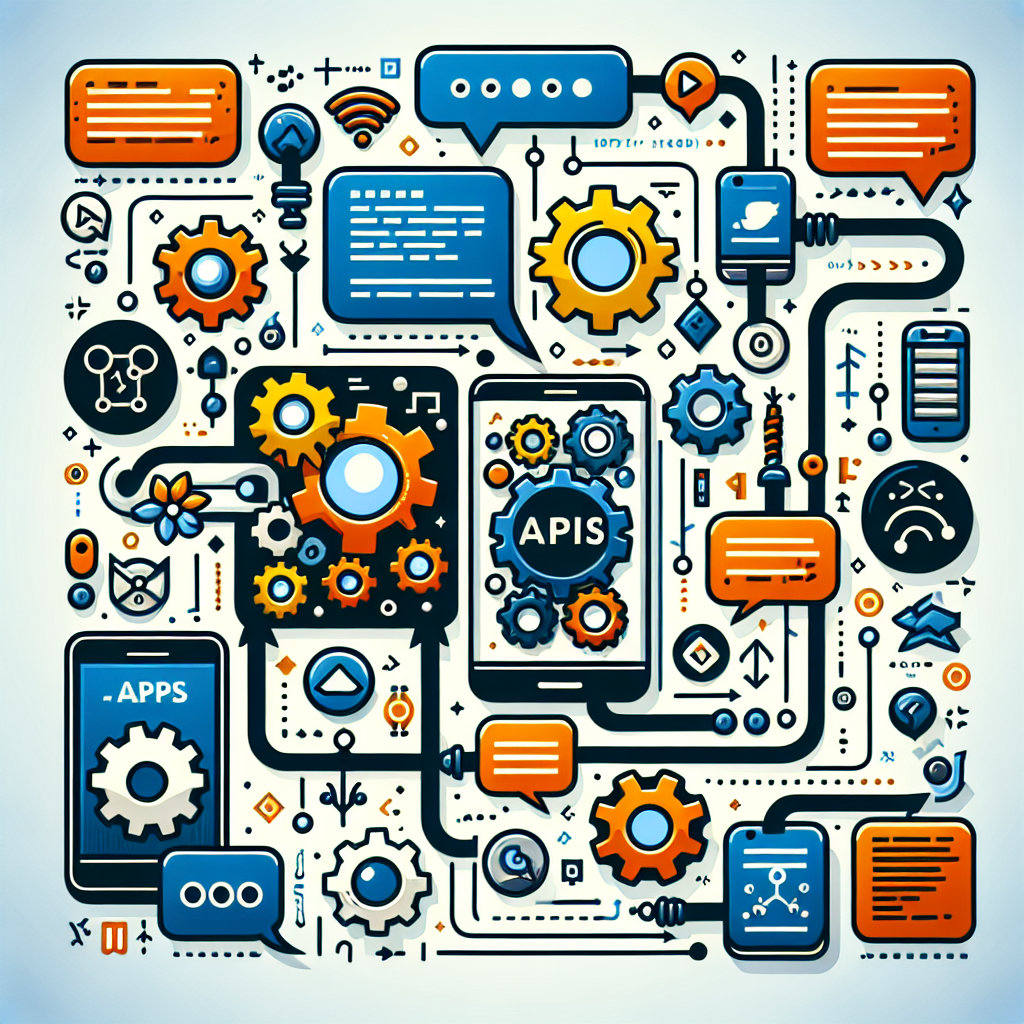Exploring the Role of APIs in Mobile App Development
Exploring the Role of APIs in Mobile App Development
In the ever-evolving landscape of mobile app development, APIs (Application Programming Interfaces) have become essential tools for developers. These interfaces facilitate communication between different software applications, allowing developers to enhance app functionality and improve user engagement. In this guide, we will explore the critical role of APIs in mobile app development, focusing on integration strategies, user engagement, and the overall impact on app functionality.

Understanding APIs in Mobile App Development
APIs serve as a bridge between different software applications, enabling them to interact and share data seamlessly. In mobile app development, APIs allow developers to incorporate third-party services into their applications, thereby enhancing the overall user experience.
Why Are APIs Important?
APIs in mobile app development are crucial for several reasons:
- Integration of External Services: APIs allow developers to integrate various external services, such as payment gateways, social media platforms, and cloud storage solutions.
- Enhanced Functionality: By leveraging APIs, developers can add features that improve app functionality, such as location services, messaging, and notifications.
- Streamlined Development: Utilizing APIs can significantly reduce development time, allowing developers to focus on creating unique features rather than building everything from scratch.
Types of APIs Used in Mobile App Development
There are several types of APIs that developers commonly use in mobile app development:
1. REST APIs
Representational State Transfer (REST) APIs are widely used due to their simplicity and effectiveness. They allow developers to communicate with web services using standard HTTP methods, making it easier to retrieve and manipulate data.
2. SOAP APIs
Simple Object Access Protocol (SOAP) APIs are more complex than REST APIs and are often used in enterprise-level applications that require high security and reliability.
3. GraphQL APIs
GraphQL is a query language for APIs that allows clients to request only the data they need. This flexibility can significantly enhance app functionality and improve performance.
4. Webhooks
Webhooks enable real-time notifications by sending data to a specified URL when an event occurs. They are useful for keeping mobile applications updated with the latest information.
Enhancing App Functionality with APIs
The integration of APIs in mobile app development can significantly enhance app functionality. Here are some ways APIs contribute to this aspect:
1. Social Media Integration
By using APIs from platforms like Facebook, Twitter, and Instagram, developers can allow users to log in using their social media accounts, share content, and interact with their social networks directly from the app. This not only improves app functionality but also boosts user engagement.
2. Payment Processing
APIs like Stripe or PayPal enable developers to integrate secure payment processing into their apps. This functionality is crucial for e-commerce applications, as it provides users with a seamless checkout experience.
3. Location Services
APIs such as Google Maps can be integrated into mobile applications to provide location-based services. This feature is particularly beneficial for travel, food delivery, and ride-sharing apps, enhancing user experience by offering relevant information based on the user’s location.
4. Push Notifications
Integrating APIs for push notifications can help keep users engaged with timely updates, reminders, or promotions. This feature can significantly improve user retention rates.

Strategies for Effective API Integration
To maximize the benefits of APIs in mobile app development, developers should consider the following integration strategies:
1. Define Clear Objectives
Before integrating any APIs, it’s essential to define clear objectives for what you want to achieve. Whether it’s improving user engagement or enhancing app functionality, having a clear goal will guide your integration process.
2. Choose the Right APIs
Selecting the right APIs is crucial for successful integration. Consider factors such as reliability, performance, and documentation. Popular APIs like those from HubSpot, Forbes, and Moz offer extensive resources to help developers understand their capabilities.
3. Ensure Security
When integrating APIs, security should be a top priority. Implement authentication methods, such as OAuth, to protect user data and ensure secure communication between the app and the API.
4. Monitor API Performance
Regularly monitor the performance of integrated APIs to ensure they function as expected. Utilize analytics tools to track user interactions and make necessary adjustments to improve app functionality.
5. Maintain Documentation
Keeping detailed documentation of the APIs used in your mobile app is vital for future development and maintenance. This practice ensures that your team can easily understand and manage the integrations over time.
Boosting User Engagement with APIs
APIs can play a significant role in enhancing user engagement within mobile applications. Here are a few strategies:
1. Personalized Experiences
By leveraging APIs to access user data, developers can create personalized experiences tailored to individual preferences. This level of customization can lead to higher user satisfaction and engagement.
2. Gamification
Integrating APIs that facilitate gamification elements, such as leaderboards or rewards systems, can significantly boost user engagement. This approach encourages users to interact more frequently with the app.
3. Feedback Mechanisms
APIs can be used to implement feedback mechanisms, allowing users to provide input directly through the app. This feature not only enhances user experience but also provides valuable insights for future improvements.

Conclusion
In summary, APIs in mobile app development are indispensable tools that enhance app functionality, improve user engagement, and streamline integration processes. By understanding the various types of APIs and implementing effective integration strategies, developers can create robust and engaging mobile applications that meet the demands of today's users.
For those looking to elevate their mobile app development process, embracing the power of APIs is essential. Start exploring the vast array of APIs available today and discover how they can transform your app into a more functional and engaging platform.
Sign Up for exciting AI-driven services!